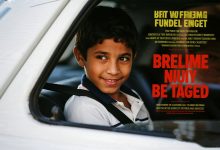When Summer Became Hell
This isn’t your typical climate change story.
This is about millions of people in Beijing who suddenly found themselves under siege. Not by pollution. Not by traffic. But by tiny winged vampires that have somehow “leveled up” this summer.
The enemy? Mosquitoes. Lots of them. Meaner ones. Smarter ones.
The battlefield? Every street corner, every home, every moment of what used to be beautiful Beijing summer evenings.
The Nightmare Begins
Liang Feng saw it first.
Standing at a traffic light on Youth Road in early August, he looked up. Above the heads of pedestrians, mosquitoes circled like “dancing nets” in the sunset.
Ten years in Beijing. He’d never seen anything like this.
His 16-month-old daughter’s tiny arms were covered in welts almost as thick as her limbs. The culprit? A few mosquitoes that snuck in when they opened the screen windows for fresh air.
That was it. No more windows. No more fresh air.
By late July, his daughter’s allergic reaction reached panic levels. After a walk, her hands and legs were swollen with bites that merged into angry red patches. Two days, no improvement.
The toddler scratched with her newly grown nails until she drew blood.
The Arsenal of Desperation
Four electric mosquito swatters. One for each room, plus a mobile unit.
Every outdoor trip became a military operation:
- Long pants and sleeves (in summer heat)
- Triple-layer mosquito repellent on stroller, clothes, and baby
- Still didn’t work
The buzzing became their nightly soundtrack of terror.
His wife started wielding the electric swatter “like performing some ritual dance.”
When Liang traveled south for work, he was too paranoid to get close to other children. Medical facts meant nothing to an anxious father. He actually worried mosquitoes might somehow jump from him to other kids.
Real talk: Mosquito prevention has become Beijing residents’ new summer job.
The Weather Conspiracy
Here’s what’s actually happening:
Subtropical high pressure systems brought humid heat and endless rain to Beijing. Those crisp, dry summer days? Now a luxury item.
For mosquitoes? Paradise.
Street vendor Liu Yue works the 4-8 PM shift. Peak mosquito time. She switched from shorts to mesh pants, but the little demons still found gaps to pierce through.
Next to her fruit stand: a pothole filled with rainwater, debris, and dreams come true (if you’re a mosquito).
Normally these puddles evaporate quickly. This year? Rain, dry, rain again, repeat.
The numbers don’t lie: Beijing had 5 rounds of torrential rain in July alone. Total rainfall by July 29: 533mm. Last year same period: 328mm.
Liu can’t afford daily mosquito spray. She stands up from her stool, grabs her pants, and fans frantically to create airflow.
The mosquitoes don’t care.
The Inequality of Suffering
Beijing weather bureau started issuing “mosquito bite risk indices” in 2021. Five levels, from low to “GET INSIDE NOW.”
Shunyi and Fengtai districts: permanent red zone. Mentougou and Huairou: relatively safe.
But even within one kilometer, experiences vary wildly.
A hundred meters from Liu’s fruit stand stands a gleaming office building. Every night, 6:30-7:00 PM, mandatory pest control. Security guards with 600ml industrial bug spray, attacking every garbage bin, toilet, sink, drain.
Property manager documents it all with photos. Upload to work group chat. Mission accomplished.
Meanwhile, security guard Xu Hua from Miyun works at an old residential complex. She and two colleagues split 30 yuan for disposable mesh screens for their one-square-meter guard booth.
Problem: mesh screens reflect light at night. Can’t see people or cars entering the complex.
So she sits in darkness. No phone (kills night vision). Just the glow from security monitors and the long wait until dawn.
How Mosquitoes Hijacked Lives
Real Story #1: The Transformation
Sisi, living near Beijing’s Fourth Ring Road, suspected a “mosquito nest” invaded her newly renovated apartment. Impossible, but the evidence was clear.
Her shopping list became a war supplies catalog:
- Electric mosquito killer
- Electric fly swatter
- Radar spray
- Repellent lotion
- Anti-itch cream
- Mosquito trap light
Total damage: 200-300 yuan.
“Used to be maybe 10 mosquitoes all summer. Now I kill 10 in one day.”
Real Story #2: The Taxi Driver’s Dilemma
Hao Lu drove taxis in Beijing for five years. Never wore long pants in summer. Until now.
Mosquitoes discovered his windshield was perfect sun-heated real estate. He couldn’t blame passengers. Couldn’t rush them.
One kid got bitten in his cab. Parents yelled at him like it was his fault.
His solution? Arctic-level AC. Mosquitoes go rigid in the cold, then get sucked out when he cracks the windows.
The cost of war: 27 extra liters of gas per month. 196 yuan down the drain. Just to fight mosquitoes.
The Evolution Enemy
Here’s the kicker: Northern China actually has the highest mosquito density in the country. Not the south like everyone assumes.
Wang Pei, a student from Fujian, used to praise Beijing’s mosquito-free summers. First year here, she could wear shorts outside without worry.
Not anymore.
Her dorm room cardboard boxes started attracting mosquitoes. Even bathroom trips became danger zones.
Her chat history tells the real story: mosquito complaints up 118% compared to last year.
Security guard Xue Kai noticed them changing. Beijing’s old black mosquitoes were slow, buzzy, easy targets.
Now? Silent killers. White-striped Asian tiger mosquitoes. Faster. More toxic. No warning buzz.
His wrist still has a scabbed wound from four days ago. The bite swelled so hard, he had to puncture it with a needle and squeeze out yellow pus.
The invasion data: In 2004, tiger mosquitoes made up less than 4% of Beijing’s mosquito population. By 2017: 14%.
The Human Cost
Lost summer evenings: Hao Lu used to end his driving shifts at a street-side restaurant. Cold beer, fried noodles, shooting the breeze with fellow drivers. This year? Straight home to frozen AC and thick winter blankets.
Sleepless nights: Yang Meng, working at a tech company for five years, remembers June 12th exactly. Two hours of sleep total. A mosquito woke her at 3 AM. She put in contact lenses, hunted it down, washed her hands, removed lenses. Sleep? Gone.
Her bedroom wall became a crime scene. Black mosquito corpses splattered across white paint.
Disrupted routines: Teacher Li Tao’s three-month-old baby can’t go out during prime tiger mosquito hours (5-7 PM). She ordered a full-coverage mosquito net for the stroller and checks every window screen for gaps.
The Bigger Picture
This isn’t just about itchy bumps.
Author Timothy Winegard estimates mosquitoes have killed 52 billion humans out of 108 billion who ever lived. Half of all humanity.
Today’s medical advances reduced mosquito-borne death rates, but they’re still deadly disease vectors in many places.
The current threat: Chikungunya fever outbreak in Guangdong Province. Over 7,000 confirmed cases in Foshan by August 2025.
Local response got medieval:
- Drain covers over sewers
- Mandatory mosquito spray at public entrances
- Door-to-door pest control
- Village-wide 6 PM incense burning sessions to drive mosquitoes outside for coordinated elimination
Beijing hasn’t detected chikungunya in local mosquitoes yet. But imported cases spread the anxiety north.
Survival Strategies (Real Stories)
The Zen Approach:
Beijing native Guo Yang developed what he calls “mindful itching.” When bitten, he focuses intensely on describing the exact sensation. “When you try to capture and analyze the itch, it disappears.”
His weapon of choice? A thick hardcover book. One night: 20 confirmed kills.
The Military Method:
Yang Meng’s pre-sleep routine:
- Stand on bed with magazine, sweep all light sources and wall areas
- Pull out every folded clothing item to check for hiding enemies
- Empty all cups, seal drains and floor outlets
- Deploy anxiety about “tonight’s potential invasion”
The Economic Solution:
Tech worker’s new bedroom setup: AC at 16 degrees Celsius, thick winter comforter, full-body armor against mosquito assault.
Sleep quality: restored. Electric bill: astronomical. Priorities: clear.
The Resistance
Taoranting Park became one of the few Beijing parks offering shared mosquito repellent dispensers. Every 50 meters under streetlights: 60ml bottles.
Gone in six days.
Witnesses reported elderly women transferring the communal repellent into personal containers.
The frontline heroes: Security guard Xue Kai keeps wind oil essence in his chest pocket for mosquito-tortured visitors. The stuff that actually works gets used up fast.
One evening before closing time, Beijing’s humidity broke. Lightning promised rain relief. Mosquitoes clustered under guard booth lights, some motionless on glass windows.
Xue Kai stood there methodically pressing each one to death with his index finger. Brown smears marking small victories.
The New Reality
Bottom line: Mosquitoes have officially changed Beijing summers.
This generation of Beijing residents never learned proper mosquito warfare. The city’s dry climate was their shield. Now they’re improvising defense strategies their southern Chinese friends mastered years ago.
The shared flower oil dispensers are empty. The AC bills are through the roof. The short pants are back in storage. The beautiful summer evening strolls are cancelled.
Real talk about real stories: Sometimes the smallest enemies create the biggest changes.
Beijing’s 2025 summer will be remembered not for heat or rain, but for the year tiny flying creatures reminded 21 million people who’s really in charge.
The war continues.
Names changed to protect privacy. Based on real interviews with Beijing residents, Summer 2025.
Tags: #RealStories #Beijing #ClimateChange #UrbanLife #PublicHealth








